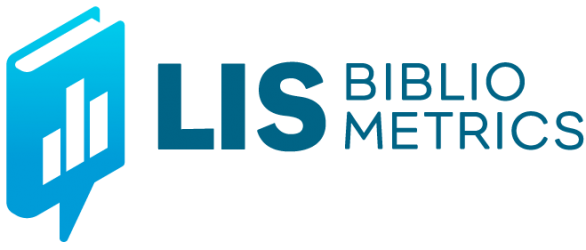Liam Bullingham from Edge Hill University encourages staff involved in supporting research to sign DORA as individuals.
This post considers the adoption of the San Francisco Declaration on Research Assessment (DORA) by both universities and individuals, specifically research supports such as librarians. The paradox of some institutions signing but doing little to act, and individuals working to support DORA without actually signing are considered.

Signing as an institution (and the significance of this)
Established in 2012, DORA is now nearly 10 years old. Many universities have now signed, even if seemingly reluctant to in the first six years or so.
But signing doesn’t necessarily mean active participation. In 2016, Dr Lizzie Gadd reflected on the important distinction between ‘blithely signing’ the Declaration while taking little action, and carefully considering what it and other frameworks represent before deciding to take a carefully considered, locally-relevant approach. To paraphrase a later piece by Lizzie, it’s true that DORA can require more of publishers than institutions, and aligning with the Leiden Manifesto is a greater commitment for a university to make.
Since it’s of greater urgency for a university to be seen to have signed DORA of more significance than the ‘DORA’ badge is an institutional policy referring to values of the Declaration. Perhaps more important still is evidence that the principles (along with those of Leiden) have taken root in the institutional culture.
Indeed, perhaps the white/black list of ‘signed/not signed’ has become a misleading indicator of its own, one which just like the Journal Impact Factor, provides a lazy shortcut when more scrutiny is needed. As Lizzie puts it, “Do we need to promise to do our best, or prove we’ve done it?” . DORA recently announced that it expects signatories to demonstrate their commitment to the Declaration, but beyond research funders, it is unclear who would actively check individual compliance in name or practice. This makes it possible for many universities to sign then ‘fly under the radar’, changing the research culture at their own pace, or not at all.
Signing as an individual
Less discussed in recent years are personal signatories of DORA, who number 17,000 compared with 2,000 organizations. Individual researchers of course, were quicker to respond in the last decade than their employers and provided a platform for institutional adoption. But given time to catch on, emphasis has latterly shifted to the significance of institutional or publisher commitments.
“There are also several examples (though I won’t name names) of librarians authoring prominent pieces in support of DORA and explaining how the library can support the Declaration, without actually signing as individuals themselves.”
As a university employee or student, looking into who has signed from your own institution can tell a story about where the JIF has caused frustration. For example, at my institution (Edge Hill University, UK) we signed in 2018. Checking the individual signatories with an Edge Hill affiliation reveals tangible support from leadership as our Pro Vice Chancellor (Research) and Dean of Arts & Sciences is present. Although our Biology department is fairly compact, the signatory list suggests strong feelings toward the JIF and research assessment are apparent there – these colleagues make up 40% of signers in the University.
Who, precisely though, should be signing DORA as an individual? And do we need to sign when our institution has – have we effectively signed by proxy already? I would argue that yes – sign if you are inclined to, even if you are not sure whether you are ‘entitled’ to.
As a research supporter rather than active researcher, I didn’t sign until recently. This is simply because looking down the signers list of academics and doctoral students I was familiar with, I didn’t feel ‘qualified’ to. I didn’t challenge this assumption until recently because I hadn’t discussed signing with other research librarians, nor observed such a discussion. Such thinking makes no sense though in hindsight, as I effectively advocate for DORA on a frequent basis by calling out poorly-informed uses of the JIF and advocating for a more carefully-considered approach to research assessment.
Another librarian I know mentioned they hadn’t signed because they were unsure about how their institution would view this. Should they wait for encouragement? Will research supporters be judged for taking such a public stance when we can just take a lead from our institution?
There are also several examples (though I won’t name names) of librarians authoring prominent pieces in support of DORA and explaining how the library can support the Declaration, without actually signing as individuals themselves. The discrepancy is interesting. Whether or not this is for the reasons mentioned above, it represents a gap, and an opportunity for DORA to increase its support base.
During a talk on DORA, open research and equity for Open Research Week 2021, DORA Chair Professor Stephen Curry expressed the desire for more people to sign the Declaration. The organisation is growing, developing its website, and expanding its resource library to realise change. It’s clear that more voices are wanted to give weight to the Declaration’s ambitions. Following up by email, I asked Professor Curry if non-researchers are wanted on the list of signers. Expressed in his own words the response was, “If you care about what DORA is trying to achieve – and clearly you do – then please sign!”
A call to action
Lizzie’s 2016 post highlighted the problem of signing as an institution but not translating this into action. However there is a pitfall with doing the opposite too – not signing as an individual when you are actually doing the work and fighting the good fight on the ground. Institutions are signing, then doing the work, while research supporters such as librarians are already doing the work, and not signing – can this be joined up somehow?
“If you support DORA in principle or are enacting its values in practice, fully articulate your practice and sign as an individual. This lends support to the Declaration and serves to evidence its actual impact.”
If you support DORA in principle or are enacting its values in practice, fully articulate your practice and sign as an individual. This lends support to the Declaration and serves to evidence its actual impact.
Senior leaders who support DORA should consider whether the institutional culture may be holding back research supporters who advocate for the Declaration from actually signing themselves. Discuss this with your staff and empower them to sign if they wish to.
If you work with DORA, consider engaging in discussions with research supporters about signing and clearly state who you are hoping will add their name to the list. This will lay bare any misunderstandings and embolden individuals. If it never occurred to you to sign until now but you support the principles of DORA, I’m challenging you now: ask yourself whether you want to sign.

Liam is Edge Hill University’s Research Support Librarian. He leads the Research Support Team with a broad role encompassing scholarly communications, advising on responsible metrics, researcher training, and managing the University’s two research repositories. His current research interests include open access embargoes and the benefits of open research for end users.
![]() Unless it states other wise, the content of the Bibliomagician is licensed under a Creative Commons Attribution 4.0 International License.
Unless it states other wise, the content of the Bibliomagician is licensed under a Creative Commons Attribution 4.0 International License.

One Reply to “”